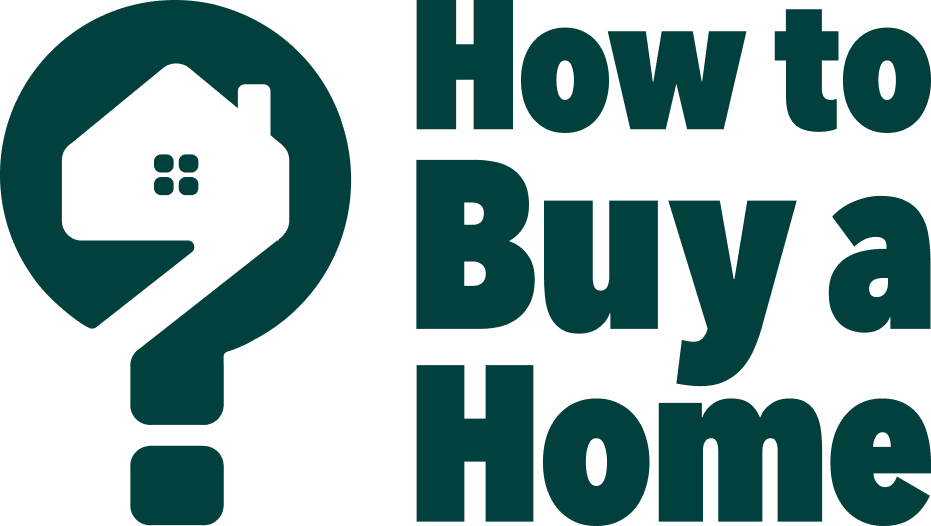
Be in the know and understand the homebuying process a little better. This episode is dedicated to everything you need to know that starts with “R” when you are looking to buy your first home!
—
First Time Home Buyer Terms And Definitions from A-Z – “R”
The Glossary For The Vocabulary You Need To Know When Buying Your First Home – “R”
Buying a home can be stressful, intimidating and sometimes, the most perplexing moment in your life. If it makes you feel any better, I’m also perplexed now. I have to decide how to delineate this information to you, so you are so well-informed and comfortable about making this big life-changing decision, but I also have to decide how many times I’m going to impersonate a pirate. That’s right. It’s time for the letter R. Let’s go, you land lover.
—
I’m very excited to be here and help you guys out. as one of my followers on TikTok commented, I’m like the Boomer dad that they never had. Very much to dig in there on that one, but I’m going to take that as a compliment. Even though I am not a Boomer, Gen X. Let’s jump right in with the Rs. Our first R is Radon.
Radon
I don’t deal with this where I live in Southern California, but I do know that in the rest of the country, this is a big part of many residential real estate contracts. You folks don’t have to deal with earthquakes. I don’t have to deal with radon. We all got our stuff. Radon is a toxic gas found in the soil beneath the home. It can contribute to some bummer health issues. When you buy a home in certain areas, you have to have this checked out as part of your contract.
It’s not area specific either, just so you know. I’ve heard that one side of the street can have a super high rate on levels and the other side doesn’t. Don’t listen to all the Karens out there and the neighbors and the Aunt Sallys giving their expert opinion on how they do where they don’t have radon. Make sure you check with your local real estate pro. If you haven’t tested with the proper equipment specifically in the house you are looking at, nobody can say if that house is radon-free.
Rate Cap
The next step is the rate cap. This is the limit on the amount of an interest rate or an adjustable-rate mortgage. The arm, as we like to call it. It’s the limit that it can increase or decrease during the adjustment period. I know I’ve defined this one before, but many of these terms have so many different word configurations for the same thing. I know it’s tough to know where they are alphabetically. If you came here looking for rate cap because that’s a word you wanted to know, you can get more information under C for cap or index for a mortgage because those things are related.
Rate Lock
Our next one is rate lock, as in locking your mortgage interest rate. This is a big one that you folks are going to need to know about. I explain this in episode L. Once again, because it was Lock your loan. Get this, the mortgage industry has already started to change what I said in the L episode. Things change all the time, so you can’t listen to anybody when they tell you, “That’s not the way a loan works.” The banks adjust to figure out how they can get the most customers.
Loan locks were the subject of some confusion. Not what they are but when they happen. What they are, if you don’t know, is they lock in your mortgage interest rate. Typically, that can be 30 to 60 days and it’s there to protect you in case rates go up. Has anyone seen that happen? Rate locking can be a tricky game. It’s a bit of a gamble. Should I lock now or should I wait to lock later? Lots of their lenders do their best. They’ve been working on getting their buyers and their borrowers the lowest fees that they can. Timing those interest rate changes with rate locks, you pretty much need a crystal ball to be able to do that right.
The big online lenders have been getting crushed as the rates have gone up. Their clients have been freaking out and they have questions. When they call to check in, the online lender’s customer is, let’s say not up to par. They haven’t built something to help guide, serve, and educate the people who ask them for loans. They’re order takers. They punch in your numbers and say yes or no. They tell you what price you’re approved for. That’s all they do.
As opposed to the experienced professional unicorn, professional real mortgage brokers have your best interest at heart. They will get you an approval month ahead of time and let you work with that and then you can dissect and change and plan and work with different rates and scenarios and different credit score changes that you want to do. Maybe even do some adjustments to your savings and your debt plans.
For the record, I once again want you to understand. I don’t make a penny for mortgage brokers anywhere and I never have. In fact, I am missing out on some good sponsorship money from one of the big online lenders, Rocket Mortgage, Quicken, the old rocket. They know I talked to a lot of first-time home buyers, but if they listened, they’d figure out I bash them all the time. They’re so greedy. I bet they would love to sponsor my show, but that’s not my jam. My jam is educate and empower.
I know from experience that these online lenders are huge corporate chop shops. They treat you like a number and they do not pass the savings on to you. In fact, in preparation for this episode, I googled top online lenders. I looked at everybody that was ranking them, including Forbes, Nerd Wallet, Bank Rate and Business Insider. I looked at their ranking of the top online lenders.
Rocket Mortgage is in none of their top five online lenders, but I can guarantee you that Rocket Mortgage is the one that you’ve heard of more often, but it’s not the one that they recommend. Why did the R-word rate lock create this gigantic tangent? It’s because the real estate options are driven by fear, not facts. The online guys spend more money than they even make in order to get you to call them for their so-called expertise.
[bctt tweet=”Real estate options are driven by fear, not facts. The online guys spend more money than they make to get you to call them for their so-called expertise.” via=”no”]
Remember, Rocket Mortgage spent $1.34 billion in the second quarter of 2022 to only make a $60 million profit. All that money spent and nobody’s ranking them as any good in their service. They’re praying on the unsuspecting, intimidated and confused first-time home buyers. Let’s fix that Viva la revolution. You’re going to start hearing a lot about this. Matter of fact, you’re going to see it when you’re watching football. I did.
Rate lock is the new buzzword as rates are going up higher and everyone’s freaking out about it. I was watching football and no less than a dozen commercials with online lenders talking about a rate lock 90 days before you shop because they want to protect you. The banks are starting to switch a little bit and giving you that 90-day pre-writing and offer rate lock. This could be important for you, but my advice is don’t let the 90-day rate lock be the reason that you call someone.
It’s not proprietary. They’re not the only ones doing it. If they’re doing it, I guarantee you, your mortgage brokers, other banks, credit unions, and everyone else is probably doing it too. Don’t let a 90-day rate lock be the reason that you pick up the phone. If that 90-day rate lock gets you excited and that is the reason that you pick up the phone, it’s the first time that you call lender to discuss buying a home.
The thing that bumps me out the most is that you missed months of planning that you could have been doing before you thought you were 90 days out. Things you could have done to work with a qualified mortgage broker treat you like a client, not a number. It helps you make a plan that’s personalized for you way before 90 days out. Planning equals options, my favorite part of this whole process.
Do yourself a favor, start early, read the episode, get yourself a team. Be a person, not a number. Learn about rate locks from pro who helped you get to the position when you’re 90 days out and ready to buy a home. They’ll know all your details and help set you up with the best options you’ve been working on since you signed your last lease months ago.

Ratified Sales Contract
Our next R is a ratified sales contract. Now the reason I tell you this is because it’s a fancy word you might hear. This is when both you and the seller of the house have agreed to your offer. Including the contingencies options for you people in Texas who do everything your way. The due diligence, the conditions and whatever you folks call it up there in Canada. A ratified sales contract means it’s legit.
Real Estate Agent
Our next R is real estate agent. It seems silly that I need to explain it, but there are some confusing pieces with real estate agent. One more time, here’s the explanation. An agent is anyone who passed the real estate license exam in their state or province and must have an affiliation with a broker. A broker can be the larger company, for lack of a better explanation, but one person, one guy, one gal, or one they or them. They can also be a broker as well.
The way it works is they don’t just work with buyers or sellers and most states are provinces. There is no designation for, “I’m an agent that works with buyers. I’m one that works with sellers.” Most of them can do both. Now some choose to more often represent one side or the other. When you’re in a deal, there can be one agent for both the buyer and the seller or there can be an agent that represents both the buyer and the seller. That’s called dual agency. In some places, it is illegal, so make sure you check all your local laws. Now, that’s an agent.
Realtor
The next thing we have is a realtor. All realtors are agents. A realtor is an agent or sometimes also an individual broker who is also a member of the National Association of Realtors. Our friends at NAR and affiliated with all the National Association Realtors, local and state associations. An actively licensed realtor is an agent, but not every agent is a realtor. A realtor is part of the union and they promise to uphold the code of ethics. They take that stuff seriously.
[bctt tweet=”An actively licensed realtor is an agent, but not every agent is a realtor.” via=”no”]
REO
This means they’re going to hold each other accountable when they’re serving the public, the customers, the clients and each other. It’s a higher standard of practice and care. That’s the definition between agent, realtor and broker. Our next R is real estate owned, known as an REO. This is a term that you may have seen regarding a foreclosure. You don’t see lots of foreclosures that are available because the way it works is before they get to become a listing like a home you see out on the market. They are first sold or attempted to be sold in auction style at the courthouse.
Those have to be sold for cash and it’s all investors in there with pockets of money and they try to buy these. If they don’t get sold there, they go back to the bank and those are the ones that show up for sale that you see. They’re called an REO, real estate owned. In general, if you don’t know anything about foreclosures, know that you have almost zero say in how the deal gets done. Nothing. No repairs, no credits and no second negotiations.
I know a lot of first-timers will get all pumped up about buying a foreclosure. They go and look at all the res, but the real behind the REOs is the buying a foreclosure to live in means that you’re playing in the investor’s pool, but you’re looking for a home for yourself. This can be super sketchy because investors are down with losing on some of their properties. That’s fine. They’ve got plenty of different properties they’re buying. They’ll take some wins and some losses as long as they’ve got enough winners. I don’t think that losing being okay or trying to hit an occasional winner is how you want to go about trying to buy the home that you intend to live in, your one and only home.
RESPA
Moving on, our next term is RESPA. This is the Real Estate Settlement Procedures Act. You might hear about this when you’re going into the deal because this is a law that has big old legal jargon google definition. The layman’s explanation, it’s a federal law protecting consumers from getting abused. What it does is it requires the lenders to disclose any known or estimated settlement costs as a home buyer is getting ready and what they’re going to have to pay.
Real Property
Our next R is real property. I maybe mentioned this before, but there is no fake property. This term is synonymous with the term real estate. It means that it’s a house, got four walls and there are things attached to the walls. That’s the real property. The things that are not attached to the walls and the furniture and all the stuff on the inside, that’s not real property. That’s called personal property.

Recorder
The next R word is recorder. It is not an instrument, even though it is my favorite thing on TikTok. I love seeing those recorder videos, but in real estate, a recorder is a public official who keeps records of the transaction. All the ones that are going to affect the real property in the area. Sometimes, they’re known as the registrar of deeds or the county clerk. What do they do? They do this thing called recording.
Refinance
Our next R. That’s the filing of a lien or other legal documents in the appropriate public record. It can also be a term that you hear when you officially close on the property. “We recorded.” That means you own the house now and the county has you on record as the person who owns it. The transfer of possession is complete.
Our next R is refinance. I did this one in the M episode under mortgage refinance, but here’s your quick refresher. Are you stuck with your interest rate for the life of your loan? No. In fact, there are a bunch of lenders out there that make their living on refinancing people over and over again into better rates. Another reason to be careful when you choose who you’re going to be using for your loan is because you want someone who does purchase loans, not just refinances, because it’s different.
Especially in 2023 and beyond because rates have been so low in 2022 and the years before that. Tons of lenders have ignored purchase deals altogether and they’re doing refinances because the rates were so low that was where they could get a ton of business. This means that currently, maybe they don’t know jack cheese about doing a decent purchase loan.
Bonus tip on refinancing. Usually, the fees you get are not that big a deal when you refinance a loan because when you bought your home, you might have an extra 30 or 45 days without your next payment on the mortgage until the new loan resets. You have plenty of time to make the money and you could have some of that money go towards the fees, if any. Some of you might find rehabilitation mortgage when you’re looking in the Rs. In a rehabilitation mortgage, all of these have numbers that start at the beginning of the type of loan. Go back and read Episode 94 because I put the number definitions before the A terms and that’s the very first one.
Rent Back
The next R is a rent back. This is something that got a lot of play in 2022. Let me explain to you what it is. A rent back or a lease back refers to an arrangement when after the recording and closing of the home and the sale transaction. Remember, recording is the official transfer possession. The buyer, at that point is now the homeowner of the home, agrees and allows the seller, who now becomes the tenant, to stay in the home beyond the actual closing. The terms are negotiated prior to the situation occurring and will often include some lease deposit. Potentially a daily rental rate and a length of time that you’re going to let this go on.
They’re a little bit tricky and require some skill as long as you got a killer unicorn realtor. They’re going to be able to work that out for you. Sometimes if you’ve got time to offer, you can score a cheaper deal if the owner needs to stay in the home for a little bit longer to figure some things out. As I mentioned many times before, real estate is about two things, time and money. The more you have of both, the better price and the better terms that you can end up with yourself.
[bctt tweet=”Real estate is about two things – time and money. The more you have of both, the better price and the better terms you can end up with yourself.” via=”no”]
Rescission
The next R word is rescission. This is for a refinance loan. Not a purchase loan. You don’t get three days to have a Lemon Law and decide that you can go back after you’ve already purchased a home. With a refinance you might get three days rescission and you can go back and change your mind. You should know the difference between revolving debt like a credit card that has a cap and you can withdraw from it and pay, but there’s no end date.
Revolving Debt
That’s revolving debt versus an installment loan that has specific payments for a specific amount usually that you draw out one time and it’s got an end date. Think car loan. You’ve been doing good reading all these real estate terms, but now it’s time that we’re going to jump into another random game of why do we save that?

I’m doing one right here alphabetically in order in the R words. It doesn’t have anything to do with pirates, but I had this one on my list and I thought I’d throw it in, riding shotgun. Does anyone know where that term comes from? I’m sure you folks say it all the time but do you know why? My video producer said that he got the correct answer. He told me the correct answer. I know it’s because he plays way too much Redemption too.
Right Of First Refusal
Back in the old-timey days, stage coaches were ripe for the robbing. They often had a bodyguard sit alongside the driver carrying a shotgun. There it is. That’s your why do we say that right in alphabetical order. Continuing in the alphabetical order for real estate, we’ll go to the right of first refusal. That is a provision in an agreement that requires the owner of the property to give another party the first opportunity to purchase or lease the property before that seller offers it up for sale or for lease to somebody else.
This used to be a big deal. It’s not used as often recently, but it still might come up if you’re in backup offer negotiation and it’s good to know what a first right of refusal means. Basically, it means you have to give us a chance before trying with somebody else. There’s usually some catch for you to be that person.
Our next R is the Rural Housing Service. It’s called the RHS. If you live and you’re thinking about buying a home in the rural areas of the United States or Canada, you should know in the US. We have the US Department of Agriculture, the USDA. I’m not quite sure where they got up in Canada but check with the unicorn and they’ll let you know.
Rural Housing Service
Down here in the US, we’ve got some of these USDA loans that go through the RHS and there are zero down loan programs for first-time home buyers and the RHS. That’s the agency within the USDA that operates the range of programs to help rural communities and individuals by providing loans and grants for housing community facilities. That same agency does some other cool stuff. They also work with private lenders. Sometimes they’ll be guaranteeing loans for the purchase or construction of single-family housing.
That’s it for the Rs. Before we wrap up, I’m going to give you a special bonus definition. Since we’re in the Rs, why don’t we define real estate? I went back and looked this one up. The real in real estate comes from some terms referring to genuine or fixed. It makes sense. Estate comes from a 16th Century French word and what that meant is status. The term real estate means genuine or fixed status.
If you’re out there and you’re still thinking about renting and trying to figure out what you can do to get ahead in life and you feel like the landlord’s crushing you, what are you going to do? I’ve got an idea. How about some fixed status? There you go. That’s it. That’s all the Rs you ever needed to know or probably ever wanted to know about real estate and I didn’t do any of the pirate jokes, wasn’t that great? Do us a favor. Help us out. Spread the word. Rate, review and share our show.
If you’re looking for more information and much less cheesy humor, go to HowToBuyAHome.com. Come on in there, ask your questions. There’s an Ask A Question button. There’s an Ask David button. Everything you need to know about buying your first home, it’s all right there. I’m not going to stop at R. More alphabet episodes are coming your way soon, so keep reading, keep watching and most importantly, keep learning. You can do this.
Important Links
- Rocket Mortgage
- Quicken
- National Association of Realtors
- Episode 94 – Past episode
This podcast was started for YOU, to demystify things for first time home buyers, and help crush the confusion. After helping first timers for over 13 years, I knew there wasn’t t a lot of clear, tangible, useable information out there on the internet, so I started this podcast. Help me spread the word to other people just like you, dying for answers. Tell your friends, family, and perhaps that random neighbor you REALLY want to move out about How to Buy a Home! A really easy way is to hit the share button and text it to your friends. Go for it, help someone out. And if you’re not already a regular listener, subscribe and get constant updates on the market. If you are a regular and learned something, help me help others – give the show a quick review in Apple Podcasts or wherever you get your podcasts, or write a review on Spotify. Let’s change the way the real estate industry treats you first time buyers, one buyer at a time, starting with you – and make sure your favorite people don’t get screwed by going into this HUGE step blind and confused. Viva la Unicorn Revolution!
Instagram @DavidSidoni
Tik Tok @howtobuyahome

